The session on Physical Self, as part of the Self Module, was conducted on May 28 by Ms. Isha Saxena (Project Officer) and Mr. Akash Thapa (Training and Monitoring Officer) from Pro Sport Development (PSD). PSD is a sport for development organisation that works with youth and children, using sport as a tool for their holistic development. In addition to working directly with young individuals, PSD also collaborates with organisations and facilitators such as trainers, coaches, and physical education teachers.
The session on Physical Self aimed to enable fellows to develop a deeper understanding of their physical selves by increasing self-awareness, reflecting on their unique characteristics, and cultivating a positive relationship with their bodies.
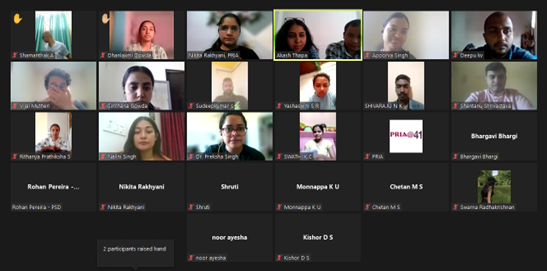
At the beginning of the session, the fellows were asked to share their own understanding of self and reflect on three physical characteristics that defined them. Some shared that self is the balance between mental, emotional, physical, and financial well-being. Others went beyond physical appearance and mentioned that self comprises not only how one looks but also their attitudes, values, and wisdom. Through their reflections on their physical characteristics, a beautiful diversity of traits emerged, ranging from curly hair to unique nails to different eye colors.
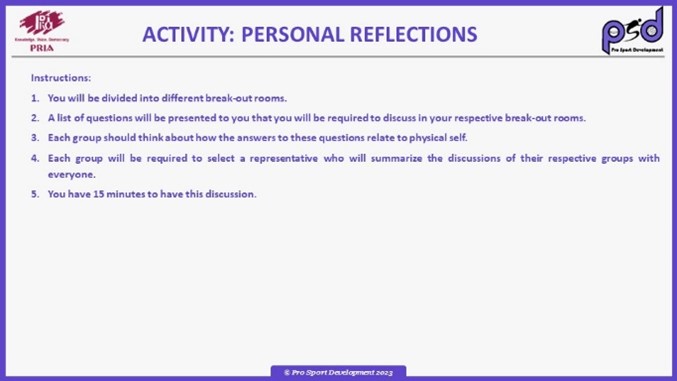
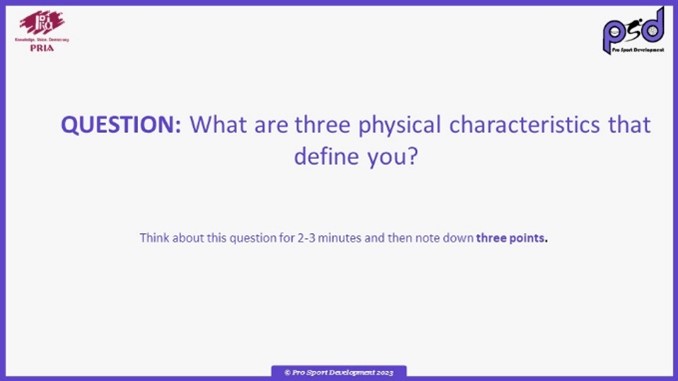
Fellows then participated in a group activity called “Island Survivor,” where they worked together in groups to collect items by performing physical activities. Engaging discussions and reflections that followed provided the fellows with valuable insights and solidified their understanding of what constitutes the self. They also recognised how their physical selves contribute to their overall well-being and self-perception.
After the discussion, a mood board activity was organised to allow the fellows to establish a connection between emotions and their physical selves. This activity emphasised that the physical self encompasses not only appearance but also the internal aspect of how we feel and express ourselves. Fellows were shown pictures of athletes exhibiting various expressions, such as excitement, victory, and disappointment, and encouraged to act out and embody those expressions as part of the activity.
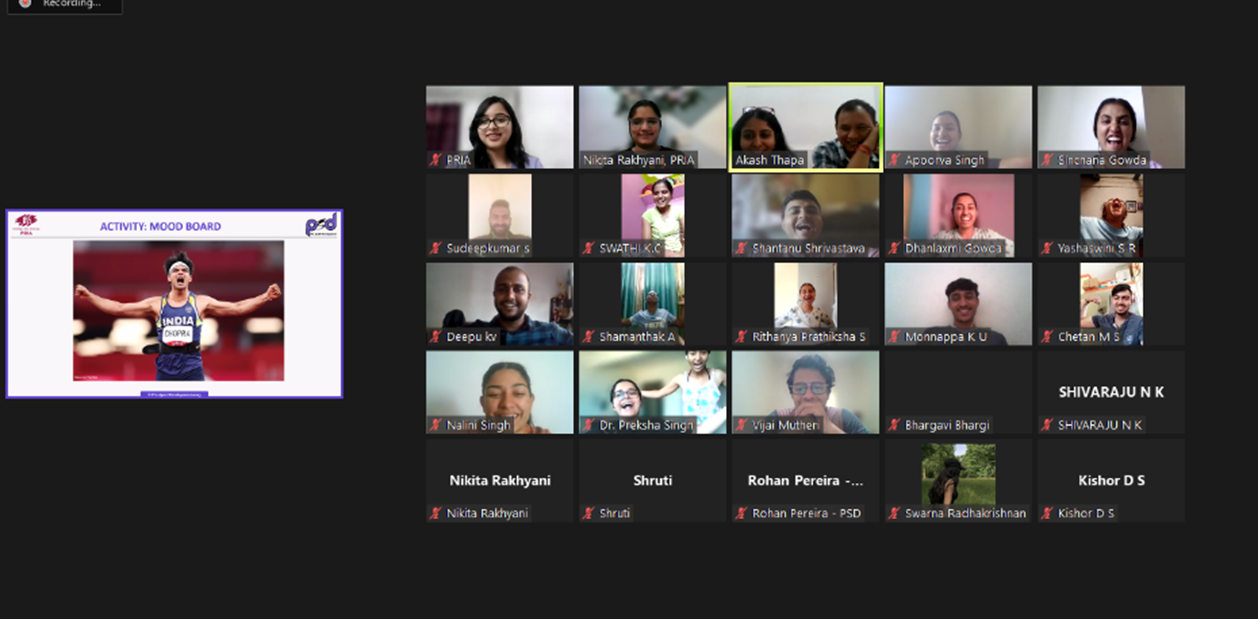
In addition to exploring the concept of self and reflecting on physical characteristics, the session included a discussion about body types and challenging stereotypes by not conforming to societal norms regarding appearance. The significance of embracing diverse body types was emphasised. Fellows were asked to consider the physical characteristics that define professional athletes. Responses included agility, energy level, height, and other similar attributes.
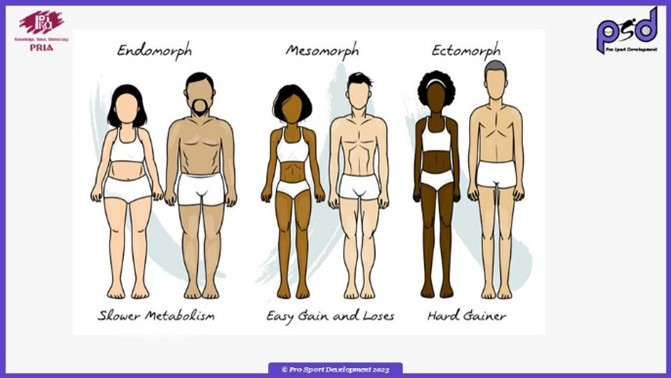
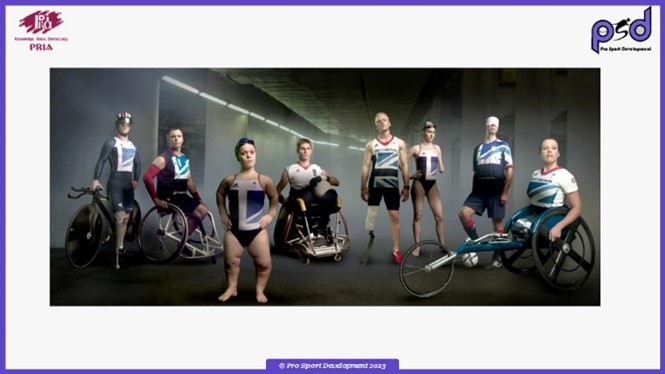
Facilitators then showed images of professional athletes involved in sports such as sumo, weightlifting, basketball, and Athletes with Disabilities. The debrief highlighted that even professional athletes who excel in their respective sports do not have a uniform appearance; they come in a variety of shapes and sizes. This served as a reminder that each body type possesses unique strengths and capabilities that contribute to individual excellence in different fields.
In conclusion, the facilitators highlighted the significance of making informed choices regarding one's body, free from the influence of societal or social media expectations. They emphasised the existence of diverse body types and the understanding that success is not limited to a single body type. This understanding plays a crucial role in cultivating a positive self-image and approaching self-care and fitness with a clear and well-informed mindset, ultimately enhancing overall well-being.